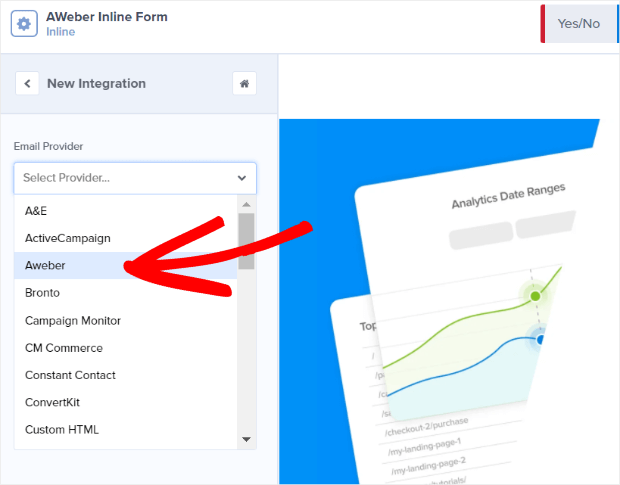20 Good Suggestions For Picking Email List Sellers
Wiki Article
What Are The Factors I Need To Think About Before Buying An Pathologist E-Mail List?
Consider these factors when purchasing the pathologist's email lists to ensure that the information is accurate, in compliance with legal regulations and appropriate to your marketing or outreach goals. Here are the most important factors to be considered: 1. Quality and accuracy of data
Source of data: Ensure the email list service provider collects their data from reliable sources, like professional directories, health databases or opt-in contacts that have been validated. The email addresses will be current and relevant.
Verification Process - Confirm that email list was verified recently. It is crucial that email the service providers are able to cleanse and validate emails by removing invalid or invalid email addresses. A high-quality list has a low bounce rate and better deliverability.
Segmentation and Customization - Search for lists of options to categorize by location or subspecialty (e.g. forensic pathology or clinical pathology) or experience years or hospital affiliations. The ability to customize your website allows you to connect with the right people more effectively.
2. Legal Regulations
Data Privacy Regulations: Ensure that the email list you use is in compliance with data privacy laws like the General Data Protection Regulation (GDPR) in Europe and the California Consumer Privacy Act (CCPA) in the U.S., and any other applicable laws. The pathologist data collected must be handled in a lawful manner that respects the privacy of the individual.
CANSPAM Act: If you're located in the U.S.A. or are targeting U.S. pathologists make sure your email lists are compliant with. The CANSPAM Act governs commercial emails. Non-compliance may result in heavy fines.
Check to ensure that the emails on the list are those with valid opt-in consent. This will ensure that pathologists are willing to receive promotional materials and reduces any complaints about spam.
3. Provider Reputation
Credibility of the provider: Choose a service that has an established track record of sending accurate and compliant email lists. To determine the quality of service, read reviews, ask for testimonials, and get in touch with other health marketers.
Transparency: Providers need to be transparent in their methods of collecting data and the frequency at which they update their data. Don't choose a provider that doesn't give any details on the source of their email lists from.
Customer Support: Choose an organization that provides a solid customer service in case you need assistance with the list or encounter technical issues.
4. Costs and Return on Investment (ROI).
Pricing Models Pricing Models: There are various pricing models offered, such as pay-per - contact, flat-fee for the list or subscription. The cost should be compared with your marketing budget and the possibility of a return on investment (ROI).
Refund Policy. Certain service providers offer refunds on emails that do not meet the requirements of their service or are invalid. Be sure to check the company's policies on refunds and replacements.
Value for money: Compare the value of the list, the degree of segmentation and other services offered (e.g. CRM integration, campaign management) against the cost. The list with the lowest cost may not always be the best in the event that its quality of service is low.
5. Ownership and Use of Data
Make sure you understand your usage and licensing rights. Do you wish to buy the list only once, or do you want to use it for ongoing campaigns? Some vendors only provide a single-use license, while others provide unlimited usage, which is better for long-term outreach.
Exclusive vs. shared lists: Determine which list is you or is shared with other people. Exclusive lists can lead to more engagement as the recipients are not bombarded by numerous sources.
6. Data Format and Integration
Integration with CRM/Email Marketing Tools Verify that the email list that you're using is able to be integrated into any existing CRM or Email Marketing tools. The data must be in a standard format such as CSV or Excel that is able to be imported easily.
Data Segmentation: Assess the ease to segment and filter the list once it's been integrated. Effective segmentation can result in targeted email campaigns that have more open rates and higher responses.
7. Ethical Aspects
Pathologists are highly skilled and have a lot of specialization. Make sure that your product, service or message is pertinent to their requirements. Sending out irrelevant information may damage the reputation of your company or cause complaints of spam.
Spam Reports: Sending unsolicited emails or a large amount of emails could result in spam. Plan carefully and use the list ethically when planning your campaigns to ensure that you don't damage your sender's reputation.
Conclusion
If you do it right, purchasing an email list of pathologists can be a powerful marketing tool. Prioritize the quality of data, legal compliance, and the reputation of the provider to maximize the effectiveness of your outreach. Be sure to tailor the list according to your requirements, and to adhere to all privacy laws regarding data and ethical practices in marketing. With these considerations you will be able to create an effective and efficient email campaign specifically targeted towards pathologists. Follow the most popular pathologist email list for site advice.

What Factors Should I Be Thinking About When Purchasing An Urgentcare Email List?
Take note of these points before purchasing the urgent list of email addresses. You must make sure the list is correct and efficient, that it is compliant with the law, and that it will meet your goals for marketing. Below are some important aspects to consider. Quality of data and accuracy
Source of Data - Ensure that the data that the service provider collects comes from credible sources like medical associations or databases for healthcare. Avoid lists created by scraping data or using untrusted methods that could include incorrect and outdated information.
Verification Process Verify that the email lists are regularly updated and inspected. A trusted service will use a strict verification process that removes inactive duplicate, invalid, or invalid email addresses. This will improve delivery and decrease bounce rates.
Segmentation and Targeting: The list should offer segmentation options including location (city, state, region) and the dimensions of the urgent care facility and the specialties they offer (e.g. diagnostics, pediatrics) and the decision-makers' roles (e.g., medical directors, practice owners, etc.). The lists you create can improve the outreach of your organization by increasing engagement.
2. Legal Regulations
Data Privacy Laws â Ensure that your list is in compliance with the applicable data protection laws. This includes the General Data Protection Regulations (GDPR) for Europe, California Consumer Privacy Acts (CCPA) for the U.S. and other local laws. This means that emails should be collected and processed in a legal manner with the consent of all the parties involved.
CAN SPAM Act: In the U.S.A., all email marketing campaigns are subject to the CAN SPAM Act. It is crucial to provide an easy and simple opt-out option. Avoid using subject lines that are misleading and also your physical address for mailing. Failure to comply with the law could result in damages to your reputation.
Opt-In Consent: Make sure the addresses on the list have been obtained with explicit opt-in consent which means that the recipients have opted-in to receive third-party marketing communications. This can reduce the potential of spam complaints and any legal issues.
3. Provider Reputation
Established Providers: Select one with established track records of providing compliant and high-quality lists. You can assess a service's credibility by reading reviews, testimonials, and cases studies.
Transparency: The provider must be clear about the data's source and the date when it was last updated. This could be a sign of poor quality data if the provider is unable to provide clear answers on their data collection methods.
Support for customers is essential when your business requires help with compliance concerns or technical issues, or even customizations. A responsive provider will help you maximize the value of your email database.
4. Cost and Return On Investment (ROI).
The majority of email list providers offer different pricing models, including flat-fees or pay-per-contact. The pricing model must be evaluated in conjunction with the budget for marketing and the ROI you are expecting. The cost of your list must be weighed against the quality and relevance of the information.
Refund and Replacement Policy: Many trustworthy providers offer a return or replacement policy if significant portions of their email addresses cannot be sent or are inactive. Be sure to read the policy's terms prior to purchasing.
Cost-effective: Don't go with the most affordable choice. Instead, choose lists that are reliable and include a thorough segmentation. Making investments in top-quality lists will increase engagement and increase your return on investment.
5. Ownership and Usage of Data
Single-Use and. Multi-Use: Identify whether you are able to use the list for one campaign or multiple times. Lists that allow multiple uses offer better value. This is especially true in the event that you intend to conduct ongoing campaigns.
Exclusive vs. Shared lists: Determine the list's exclusivity or shared. Shared lists could lead to list exhaustion, as recipients receive marketing messages from multiple businesses.
6. Data Integration and Format
Check for CRM compatibility: Make sure the email list is delivered in a format that is compatible with your CRM (CRM) or email marketing platform, such as CSV or Excel. This enables seamless integration, allowing you to start your campaign right away.
Ease of Use: The email list must be simple to maintain and segment based on the criteria you have set. A well-organized list can allow you to personalize and tailor your emails more effectively.
7. Ethical Aspects
Relevance of Content Doctors who work in urgent care are usually busy, which is why your communication should be timely and beneficial. Your message should be tailored to their specific needs. This might include medical equipment, technology for healthcare or other supplies aligned with urgent care operations. Inappropriate content could damage the image of your company and diminish engagement.
Be aware of the frequency with which you email. Sending unsolicited emails or over-emailing can result in spam complaints, and damage your reputation as an emailer.
Also, you can read our conclusion.
When you purchase an urgent care email list, you should focus on accuracy of the data as well as legal compliance. the reputation of the company. Make sure the list is regularly updated and segmented, as well as compliant with privacy laws. By investing in a high-quality, well-targeted list and sending relevant content, you can maximize engagement and achieve the highest ROI. Take a look at the best urgent care email list for website examples.
